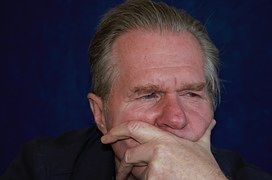Can Alzheimer’s Disease (AD) Cause Hearing Loss?

There are different types of dementia and Alzheimer’s is one of them. And so, not all dementia or cognitive decline is Alzheimer’s. However, Alzheimer’s Disease is said to be the most common cause of dementia in older adults.
Alzheimer’s is a brain disorder that develops slowly over time. As it progresses, widespread toxic changes attack the brain. Communication between the brain cells (neurons) is disrupted. Waste products, such as amyloid plaques and Tau proteins accumulate and invade the different regions of the brain. Gradually, the brain cells die off and the brain shrinks or atrophies. Along the way, dementia sets in as serious memory and thinking problems develop. Eventually people are unable to perform everyday tasks.
Central hearing damage and hearing loss
The devastation caused by plaque deposits and brain shrinkage can also affect the areas of the brain that process and decode the sound signals generated within the ear and delivered to the brain by the hearing nerve. Progressive damage to these central (brain) hearing structures leads to central hearing loss, a type of loss that cannot be corrected by hearing aids. It is often considered among the early symptoms of Alzheimer’s and a contributor to cognitive decline. Once central sound processing is damaged, people have trouble locating sound, recognizing sound or interpreting it, all of which can be very scary.
Act early: Lower modifiable Alzheimer’s risks
Although first described in 1906 by Dr. Alois Alzheimer, there is so far no cure for the disease. However, intense research continues into its exact causes, diagnostic challenges, prevention tactics as well as treatment options. Risk factors include aging, health, lifestyle and complex genetics. Although it is hard to predict our mental health future, the CDC (Centers for Disease Control and Prevention) reminds us that people can lower their chances for Alzheimer’s by “modifying” potential risks. We cannot control our genetics. We cannot help it that we are aging. But by making healthy lifestyle changes, we can age a lot better and happier. Of course, the earlier in life one starts the better it will be.
What we can do… But check with the doctor first!
At any age, help the body be the best it can be. Think Prevention!
Manage chronic conditions such as high blood pressure, cholesterol, diabetes, obesity, arthritis etc. Maintain a healthy diet, low in saturated fats but rich in colorful fruits and vegetables as these provide “good” chemicals known as antioxidants. Exercise regularly. It benefits the body and the mind. It keeps the body-brain connections alive. It keeps the blood flowing, which brings oxygen and nutrients to all areas, including the brain. It also removes waste.
However, it is equally important to exercise and stimulate the brain itself. Use it or lose it! Keep the neurons working! Read. Do puzzles. Socialize. Listen to music. Volunteer. Learn something new – maybe a new skill, language, hobby, dancing, instrument or even a new song – both the lyrics and the tune.
Also, maintain healthy hearing and prevent hearing loss! Hearing loss is a known risk factor for dementia, including Alzheimer’s. While good hearing stimulates the brain, hearing loss strains and tires the brain. This leads to depression and isolation – another two dementia risk factors.
Hearing loss goes against many practices that help maintain mental health. It interferes with communication and therefore with learning and socializing. If left unstimulated and unused, all hearing structures will atrophy, from the ear to the brain. This can result in an earlier onset of dementia or an acceleration of the dreaded cognitive decline.
And so, protect your ears in noisy places. Get tested and get hearing help if hearing and understanding speech become issues. Don’t procrastinate as early intervention is important. It is said that hearing aids can ease the impact or delay the onset of dementia by keeping people socially active and engaged.
In the end, nobody knows what the future holds. Maybe there will be cure for Alzheimer’s and for other types of dementia? Meanwhile, there are many healthy and common-sense actions that can increase our odds for healthy and happy aging and for keeping Alzheimer’s at bay for as long as possible.
